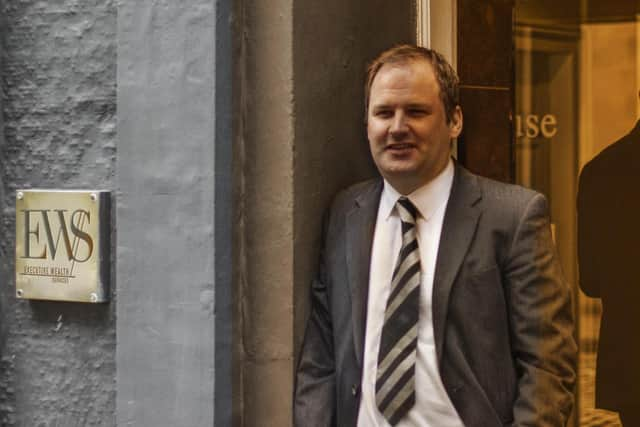Savers lose thousands from highly charged pension and investment contracts


In some cases, savings are being poured into pension and investment portfolios which are packed with hefty charges and advisors’ fees which may not be as obvious as they could be.
Often, the performance of popular packaged investment solutions do not achieve what is hoped, leaving them even further out of pocket.
According to Chartered Financial Planner David Garvey, Managing Director of Edinburgh-based Executive Wealth Services (EWS), the double hit on their savings can add up to significant amounts of money which many investors don’t even realise they are losing.


Recent portfolio reviews carried out on behalf of up to 70 investors by EWS revealed every one of them to be haemorrhaging money which, with alternative and more appropriate advice, could have stayed in their own accounts.
It means some high-level investors may reach retirement age short of thousands of pounds.
The findings have led Mr Garvey to urge investors to undertake a full review of their financial portfolios to ensure they are not among many losing out on precious income and capital growth.
He said: “There are lots of packaged investment products out, especially those offered by large insurance companies, where investors are being shoe-horned in by the via advisory distribution channels but which are loaded with costs and fees.”
“I am concerned that in some cases, they are being encouraged to invest to help suit their adviser’s income requirements rather than to achieve the best outcomes for their money.
“Investors should ask themselves what is in it for who is advising them, and why are they directing their investments towards certain kinds of ‘active’ investment portfolios which tend to attract higher charges.
“My concern is that clients are being pushed into underperforming investments and are paying through the nose for them, yet the advisers continually benefit.”
A key concern surrounds the number of investors guided towards ‘active investing’, in which analysts buy and sell investment instruments in an effort of beating the market, large scale studies over decades by many prestigious bodies and institutions shows that this rarely works as a strategy.
The style of investing can be touted as offering good investment potential, however Mr Garvey warns that investors can sometimes be unaware that portfolio managers often quote returns without including management fees.
That can lead to them ploughing money into an ‘active’ portfolio hoping for higher returns, unaware that they are being hit by mounting transaction and fund management costs, plus annual platform and advisory fees.
These comments are endorsed by the Financial Conduct Authority ‘sector review’ last week which assesses potential financial losses over the next 5 years of some £40bn due to unsuitable product choices or investment strategies which it states could cause ‘significant consumer harm’.
Instead, a ‘passive’ low cost index tracking fund which limits buying and selling of stocks and shares is often a more cost-effective choice.
“A passive strategy requires a buy-and-hold mentality that resists the temptation to react or anticipate the market’s every move,” says Mr Garvey.
“In our experience the difference in annual costs of investing passively as opposed to actively can be as much as 1-2.5% additional cost per annum. In round figures that can be as much as £12,500 on a portfolio value of £500,000.
“Over the lifespan of an investment portfolio - which can be as long as two or three generations when the portfolio is subject to intergenerational succession - these costs can be hugely detrimental to the net return achieved by the investor.”
Mr Garvey has urged investors to consider a free, no obligation financial health check which can help highlight areas within their financial portfolio which are under-performing or are being eaten into by unnecessary costs and fees.
EWS is an independent, fee-based financial adviser firm regulated by the FCA, with extensive experience of helping investors achieve the best possible return while ensuring portfolio management costs are clear, fair and transparent.
To find out more and arrange a free ‘second opinion’ on a financial portfolio, visit www.ewsfinancialadvisers.co.uk
You can also contact David here: E: [email protected] M: 07823 559 601